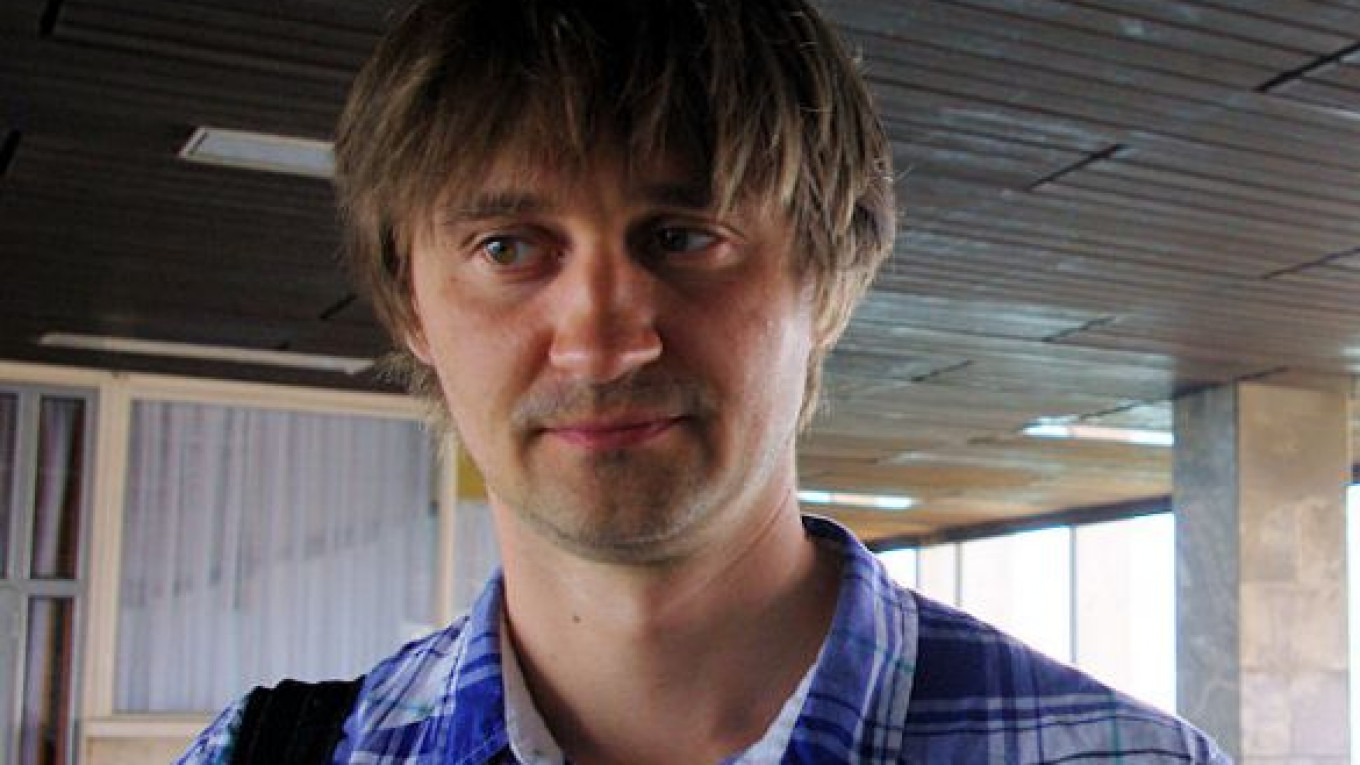Law enforcement officials on Friday morning raided the flat of an award-winning director filming an ongoing documentary series about the lives of opposition leaders.
The news first broke on social networks, where Pavel Kostomarov's colleagues drew attention to the search of his apartment at about 7 a.m.
“There is a search going on in Pavel Kostomarov's flat. The originals for the 'Srok' project are kept in his flat,” Vitaly Mansky, a fellow director, wrote on Facebook.
Kostomarov, 37, is currently shooting a political documentary series called “Srok” (The Term) with fellow director Alexander Rastorguyev and NTV journalist Alexei Pivovarov that features dozens of interviews with opposition leaders.
In 2010, he won an award at the Berlin Film Festival for his camera work for Alexei Popogrebsky's “How I spent this summer.”
There are more than 1,100 episodes in the “Srok” series so far, many of which are no more than a few minutes long, and the directors have said that they ultimately aim to make a full-length film with the material they have gathered.
Friday's raid came on the same day that NTV's Pivovarov interviewed Prime Minister Dmitry Medvedev during a live TV question-and-answer session with prominent journalists from five channels at noon.
When asked about the raid, Medvedev said he found it strange that investigators had raided Kostomarov's flat at such an early hour given that the director's work could be easily accessed online.
“It was possible to request this information according to the normal procedure,” Medvedev said, implying that it wasn't necessary to search Kostomarov's address.
Medvedev added that he had only seen fragments of the series, which he said contained “documentary-style clips,” and that Kostomarov could lodge an appeal with prosecutors as a means of challenging investigators' actions. In comments not meant to be broadcast on state-run TV, Medvedev called those responsible for the raids "bastards."
In an effort to explain the early-morning search, investigators linked the searches to the ongoing criminal case against protesters charged over clashes with police at a May 6 protest on Bolotnaya Ploshchad and said Kostomarov was being treated as a witness.
Kostomarov later confirmed to Kommersant-FM radio that he had been summoned to the Investigative Committee's headquarters for questioning on Monday and that he had been forced to sign a non-disclosure agreement.
The first episode of “Srok,” which was posted on YouTube on May 21, was dedicated to the life of anti-corruption lawyer Alexei Navalny and featured scenes in which the opposition figurehead was detained during the May 6 rally.
In the wake of the protest, at which more than 400 people were detained, authorities have implicated at least 17 demonstrators — most of whom are still awaiting trial — in what Kremlin critics have painted as a crackdown on dissent.
Speaking hours after Friday's raid, fellow director Mansky criticized authorities for “showing not the slightest respect for property rights, for an artist or for material filmed without government money.”
“We know what usually happens next — arrest, torture and what 1937 already taught us,” Mansky told Interfax, referring to the Great Terror under Soviet dictator Josef Stalin.
Left Front leader Sergei Udaltsov, whom Kostomarov interviewed for the “Srok” project, told journalists that the raids were an attempt to apply pressure on the opposition on the eve of a 50,000-strong anti-Kremlin rally planned for Dec. 15.
But the harshest backlash came from the Cinema Union, a nongovernmental organization representing Russian directors, which posted a statement on its website slamming investigators' search tactics as "a travesty of justice" reflecting Russia's dismal human rights record.
“The main task of a documentary filmmaker is to create a cinematographic record of the time in which he lives, independent of the personalities and opinions of those who occupy positions of power behind the Kremlin's walls,” the statement said.
Related articles:
A Message from The Moscow Times:
Dear readers,
We are facing unprecedented challenges. Russia's Prosecutor General's Office has designated The Moscow Times as an "undesirable" organization, criminalizing our work and putting our staff at risk of prosecution. This follows our earlier unjust labeling as a "foreign agent."
These actions are direct attempts to silence independent journalism in Russia. The authorities claim our work "discredits the decisions of the Russian leadership." We see things differently: we strive to provide accurate, unbiased reporting on Russia.
We, the journalists of The Moscow Times, refuse to be silenced. But to continue our work, we need your help.
Your support, no matter how small, makes a world of difference. If you can, please support us monthly starting from just $2. It's quick to set up, and every contribution makes a significant impact.
By supporting The Moscow Times, you're defending open, independent journalism in the face of repression. Thank you for standing with us.
Remind me later.






